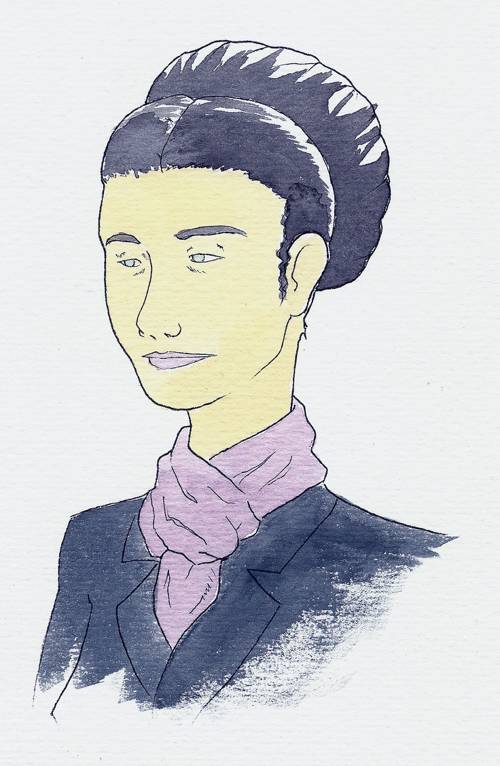
FAQ About Simone de Beauvoir

Who was Simone de Beauvoir?
Simone de Beauvoir was a prominent French author, existential philosopher, and feminist, born on January 9, 1908, in Paris, France. She is best known for her significant contributions to feminist theory and existential philosophy. Her most influential work, 'The Second Sex,' published in 1949, is considered a foundational text for modern feminism. Throughout her life, she engaged in existential discourse, and her philosophical works often addressed themes of freedom, responsibility, and the complexities of human existence.

What is 'The Second Sex' about?
'The Second Sex' is a seminal work in feminist philosophy by Simone de Beauvoir, published in 1949. The book explores the lived experience of women in a patriarchal society, delving into issues of gender inequality and the historical treatment of women as "the Other." De Beauvoir examines how societal norms and structures have perpetuated the subjugation of women, calling for liberation and advocating for gender equality. Her analysis gained immense influence in both feminist theory and existentialist philosophy.

What are some key themes in Simone de Beauvoir’s writings?
Simone de Beauvoir's writings commonly explore themes such as existentialism, freedom, responsibility, feminism, gender relations, and the nature of self-identity. In her works, she frequently examines the social constructs surrounding women's oppression and their pursuit of autonomy and equality. She also discusses the philosophical concerns of existence, offering insights into human freedom, choice, and ethical responsibility.

How did Simone de Beauvoir contribute to existentialism?
Simone de Beauvoir contributed to existentialism by extending its principles to address issues of gender and ethics. Her works, including 'The Second Sex' and 'The Ethics of Ambiguity,' incorporate existential concerns such as individual freedom, responsibility, and the meaning of existence, while also critiquing societal norms that restrict freedom, particularly for women. She argued for personal authenticity and the necessity of recognizing others' freedom, making her an integral figure in existentialist philosophy.

Did Simone de Beauvoir have any famous relationships?
Yes, Simone de Beauvoir had a notable relationship with fellow philosopher Jean-Paul Sartre. Their partnership was both intellectual and personal, marked by a shared commitment to existential philosophy and an open relationship style. They collaborated extensively and influenced each other's work, though they refused to marry, maintaining individual autonomy. Their relationship is often discussed as an example of existential companionship.

Why is Simone de Beauvoir considered a pioneer in feminist theory?
Simone de Beauvoir is considered a pioneer in feminist theory primarily due to her groundbreaking work, 'The Second Sex,' which laid the foundation for the modern feminist movement. Her thorough analysis of women's oppression and critique of patriarchy provided a philosophical framework for understanding gender inequality. She challenged conventional roles assigned to women, advocating for their liberation and intellectual and social equality, which has inspired generations of feminist thought and activism.

What impact did 'The Second Sex' have on society?
'The Second Sex' had a profound impact on society by bringing attention to women's issues and sparking discussions around gender equality and feminism. It challenged traditional views and encouraged women to seek freedom and independence beyond their prescribed roles. The book became a cornerstone of feminist literature, influencing both feminist activists and scholars worldwide, and continues to be a crucial text in gender studies.

What is Simone de Beauvoir’s philosophy of The Ethics of Ambiguity?
In 'The Ethics of Ambiguity,' Simone de Beauvoir elaborates on the moral and ethical implications of existentialism. She asserts that life's inherent ambiguity doesn’t absolve us of responsibility; rather, it requires individuals to face the freedom of choice and moral responsibility. De Beauvoir argues for an ethics grounded in the coexistence of individual freedom and the freedom of others, emphasizing the necessity for solidarity and active participation in the world.

What role did Simone de Beauvoir play in the existentialist movement?
Simone de Beauvoir played a crucial role in the existentialist movement as both a leading thinker and a proponent of existentialist ethics. Through her philosophical writings and her partnership with Jean-Paul Sartre, she helped shape existentialism into a comprehensive philosophical framework. Her works added depth to existentialist discourse, particularly her exploration of ethics, freedom, and gender relations, thereby reinforcing existentialism's relevance in addressing human conditions.

How did Simone de Beauvoir influence feminist literature?
Simone de Beauvoir influenced feminist literature by articulating the challenges faced by women in her seminal work, 'The Second Sex.' She provided a thorough critique of the societal structures that oppressed women and offered an existential perspective on gender identity and freedom. Her work laid the groundwork for feminist theory and inspired a new wave of feminist literature focusing on women's rights, equality, and liberation movements. Her insights continue to shape feminist discourse in literature and academia.

What are some of Simone de Beauvoir’s other notable works?
Besides 'The Second Sex,' Simone de Beauvoir authored several other notable works, including 'The Ethics of Ambiguity,' 'Memoirs of a Dutiful Daughter,' 'The Mandarins,' and 'She Came to Stay.' Each of these works showcases her philosophical insights and literary prowess, addressing themes from existentialism and feminism to history and politics. They highlight her versatile contribution to both philosophy and literature.

Was Simone de Beauvoir involved in any political movements?
Simone de Beauvoir was actively involved in various political movements, particularly those advocating for women's rights and socialism. She was a member of the French intellectual circle that supported existential and Marxist ideologies and used her influence to advocate for political and social reforms. Her works and public stances on issues related to gender equality, abortion rights, and civil liberties reflect her commitment to political activism.

How did Simone de Beauvoir view marriage and traditional gender roles?
Simone de Beauvoir criticized traditional marriage and gender roles as restrictive and oppressive to women. In 'The Second Sex,' she argues that marriage often confines women to roles of subservience and domesticity, limiting their freedom and potential. De Beauvoir advocated for women to seek independence, personal autonomy, and equal opportunities, challenging the conventional expectations society placed on them. Her views on these issues were revolutionary for her time and continue to resonate today.

What is Simone de Beauvoir's legacy?
Simone de Beauvoir's legacy lies in her profound influence on existential philosophy, feminist theory, and literature. Her works have inspired countless individuals and movements advocating for women's rights, gender equality, and intellectual freedom. She remains a key figure in philosophical and feminist academic circles, and her insights continue to provoke thought and inspire debates on issues of gender, identity, and freedom.

What was Simone de Beauvoir's relationship with Jean-Paul Sartre?
Simone de Beauvoir and Jean-Paul Sartre shared a lifelong partnership deeply rooted in intellectual collaboration and existential philosophy. They met as students in Paris and maintained a relationship characterized by mutual respect and shared ideals. Although they never married, they entered a lifelong agreement to support each other’s work and maintain their independence. Their relationship is often cited as a model of intellectual companionship and existential authenticity.

Did Simone de Beauvoir receive any awards for her work?
Simone de Beauvoir received several honors for her literary and philosophical contributions, although formal awards during her lifetime were less common due to the controversial nature of her work. Notably, she was awarded France's highest literary prize, the Prix Goncourt, in 1954 for her novel 'The Mandarins.' Her work has since gained much recognition and is widely celebrated in academic and feminist circles.

What challenges did Simone de Beauvoir face in her career?
Throughout her career, Simone de Beauvoir faced significant challenges, particularly from societal norms and critical backlash due to her progressive views on gender and existentialism. Her work was often controversial, leading to criticism and opposition from traditionalists who disputed her views on gender roles and marriage. Despite this, she persevered, using her platform to advocate for change and establish herself as a leading figure in philosophical and feminist circles.

What educational background did Simone de Beauvoir have?
Simone de Beauvoir had an extensive educational background, studying philosophy at the Sorbonne University in Paris. She was one of the first women to graduate from this prestigious institution, where she excelled in her studies and developed her interest in existentialist philosophy. Her academic achievements paved the way for her future work as a philosopher and writer.

How did Simone de Beauvoir’s upbringing influence her work?
Simone de Beauvoir's upbringing had a profound influence on her work. Raised in a conservative, bourgeois family, she was exposed to strict gender roles and societal expectations, which she later critiqued in her writings. Her early experiences of intellectual curiosity, combined with her challenging of traditional norms, fueled her passion for philosophy and feminism, shaping her perspectives and contributions as an adult.

What is the significance of Simone de Beauvoir in modern feminism?
Simone de Beauvoir's significance in modern feminism lies in her pioneering work that challenged existing gender norms and advocated for women's rights and equality. Her insights in 'The Second Sex' provided a philosophical foundation for feminist theory, inspiring subsequent generations to continue fighting for gender equality. Her work remains influential in feminist movements, continually informing debates around gender identity, freedom, and social justice.
